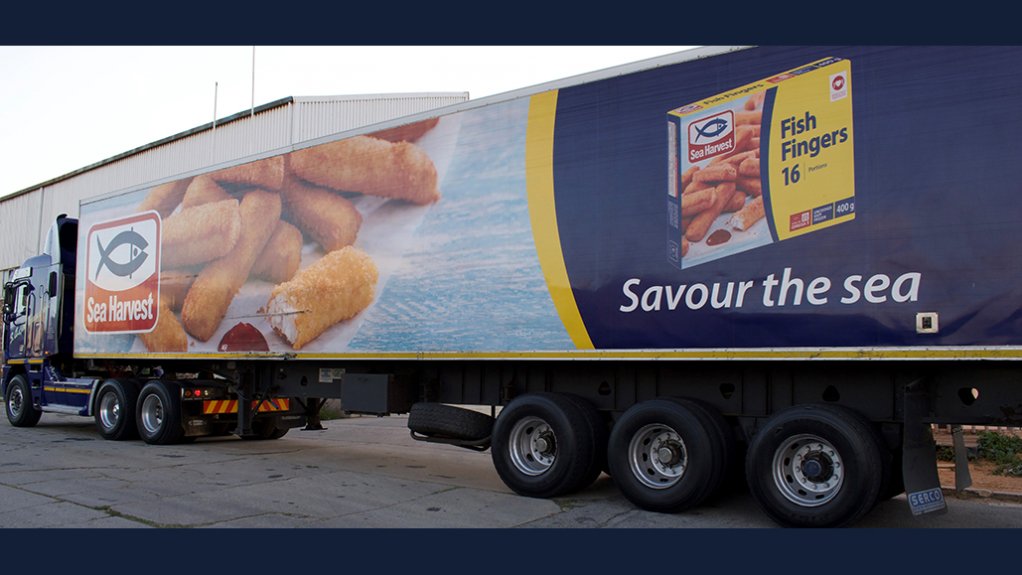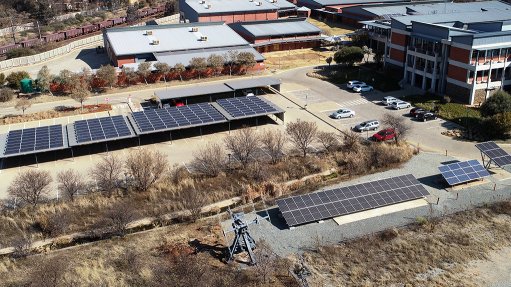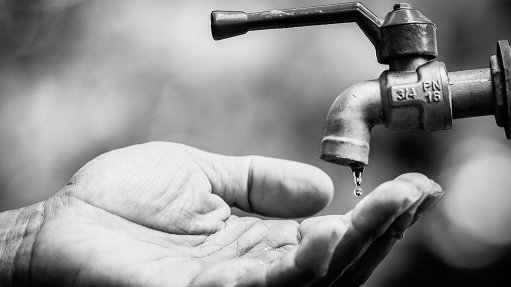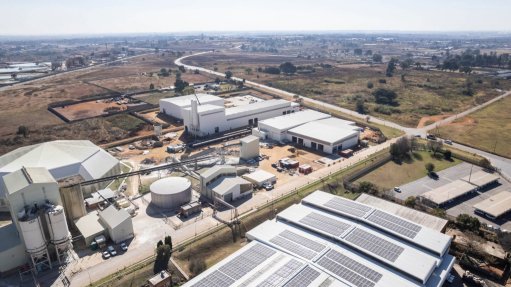Sea Harvest takes R361m knock on higher input costs, loadshedding
JSE-listed vertically integrated seafood company Sea Harvest has described 2022 as one of the most challenging financial years in the last decade, pointing out that the year was marked by unprecedented input cost increases and 10% lower available volumes.
The group nonetheless managed to contain its headline earnings decreasing beyond 33% and to grow its revenue by 27% year-on-year to R5.9-billion for the year ended December 31.
Sea Harvest CEO Felix Ratheb explains the 10% lower available volumes stem from quota losses in the Fishing Rights Allocation Process (FRAP) and a decrease of 5% in the total allowable catch (TAC).
The South African Fishing business reported a 48% reduction in operating profit to R349-million, which contributed to an overall decrease of 6% year-on-year in gross profit to R1.3-billion, compared with a gross profit of R1.4-billion in the prior year. The gross profit margin also diluted to 23% in the year under review, compared with 31% in 2021.
Headline earnings decreased by 33% to R293-million in the reporting period, compared with R439-million in the prior year.
The company incurred R361-million in additional costs as a result of a 90% increase in the fuel price, above-inflation cost increases and loadshedding. Loadshedding, in particular, led to R20-million in additional costs for the last four months of 2022.
Ratheb explains that the fuel price has reduced from an average of $100/bl in 2022 to about $85/bl currently. In turn, freight rates – in dollar terms – have come down, however, they are still elevated compared with pre-Covid-19 levels. Fortunately, Sea Harvest benefits from a weak rand on the top line.
Sea Harvest generated R659-million in cash from operations in the year under review, after settling the Sea Harvest Employee Share Trust liability of R40-million and investing R67-million in working capital.
The group’s net debt position was at R2.1-billion as of December 31, compared with a net debt position of R1.1-billion at the end of the prior year, with the increase mainly attributed to funding acquisitions.
A final ordinary cash dividend of 38c apiece was declared for the year under review, which compares to a 56c dividend having been declared in the prior year.
Sea Harvest affirms that while the core South African fishing business had an exceptionally tough year, the company remains confident in the health and sustainability of the fish business, which continues to serve as a strong foundation for the group.
The South African Fishing business, which comprises 68% of the group’s operating profit across six processing operations, still generated a 3% increase in revenue to R2.7-billion in the year under review, despite the challenges, driven by firm demand and price increases locally and internationally.
The performance of the Cape Harvest Foods segment, which comprises five processing operations and 12 factory shops, was especially robust in the year under review, with a 126% increase in operating profit to R118-million reported.
Ratheb says he is particularly pleased with the performance of the segment’s value-added dairy business and investments in its butter and milk powder operations bearing fruit.
The Aquaculture segment, which comprises five operations, including for abalone and oyster harvesting, showed vast improvement by reducing its operating loss by 37% to R40-million, compared with a R64-million operating loss posted in 2021.
Ratheb considers this a good performance from a young farm where the product mix still leans toward lower-margin live product sales.
On the international front, Sea Harvest’s Australian segment increased its operating profit from R31-million in the prior year to R45-million in the reporting year. Adjusting for the acquisition-related costs would have resulted in the Australian operations delivering an operating profit of R79-million.
The MG Kailis operation, which Sea Harvest acquired in May 2022 for R770-million, contributed strongly to the group’s performance for seven months in the year under review.
Sea Harvest also managed to achieve the goals it set in 2017 to achieve average compound growth rates of 20.4% in revenue and 15.7% in operating profit, respectively, over the past six years.
Ratheb assures that the long-term fundamentals for all the group’s segments remain attractive, with firm demand for high-value proteins locally and internationally. As an export-oriented business, Sea Harvest will continue to benefit from currency weakness.
COMMERCIAL FISHING MANAGEMENT
The Department of Forestry, Fisheries and the Environment received more than 2 400 applications for the allocation of commercial fishing rights in the 2021/22 financial year, as per the Marine Living Resources Act, including in the hake deep sea trawl, hake longline and traditional linefish sectors.
In terms of the Act, no person is permitted to undertake commercial or small-scale fishing, engage in mariculture or operate a fish processing establishment unless a right to this end has been granted by government.
The allocation of rights in terms of the 2021/22 FRAP was finalised in February 2022, with the closing date for lodging appeals having been extended to July 29, 2022. The department received 1 213 appeals across nine fishing sectors, which are being processed in phases.
Forestry, Fisheries and the Environment Minister Barbara Creecy has indicated that the 2021/22 FRAP appeals will be concluded by October this year. She recognises that the finality on the allocations of fishing rights is essential for a stable fishing industry.
She says the allocation of commercial fishing rights is central to job creation, food security and the livelihoods of many fishers and fishing communities.
The finalisation of the 2021/22 FRAP was immensely delayed, leaving many small-scale fishermen unable to legally fish as they awaited the results. The Democratic Alliance has been calling for greater action to address the many challenges faced by traditional fishermen as a result of the bungled FRAP process.
Ratheb tells Engineering News that the lower TAC, which relates to how much fish is available for catching in the water, and FRAP outcome, which relates to particular licence allocations, had material impacts on Sea Harvest’s volumes and the top-line, as well as fixed cost recovery, in the year under review.
The company explains its hake allocation is down 5% despite Sea Harvest being one of the top performing companies in all sectors applied for and one of the most transformed companies in the sector.
Ratheb confirms that the company has submitted comments on what it felt necessary in terms of the 2021/22 FRAP process.
However, he points out that at least the conclusion of the FRAP provides certainty and stability for the next 15 years, which enables Sea Harvest to plan its investment accordingly.
He mentions that the hake resource in South Africa remains one of the best-managed resources on the planet. He commends government for continuously achieving international gold standards for sustainability in hake fishing.
The reality is wild fish catching is capped, not only in South Africa, but also internationally. “We are seeing a supply and demand gap emerging in the market, with prices being poised to increase.”
Additionally, oil is expected to continue trading at elevated levels, which means Sea Harvest will have to continue focusing on fixed cost containment across the group.
Article Enquiry
Email Article
Save Article
Feedback
To advertise email advertising@creamermedia.co.za or click here
Comments
Press Office
Announcements
What's On
Subscribe to improve your user experience...
Option 1 (equivalent of R125 a month):
Receive a weekly copy of Creamer Media's Engineering News & Mining Weekly magazine
(print copy for those in South Africa and e-magazine for those outside of South Africa)
Receive daily email newsletters
Access to full search results
Access archive of magazine back copies
Access to Projects in Progress
Access to ONE Research Report of your choice in PDF format
Option 2 (equivalent of R375 a month):
All benefits from Option 1
PLUS
Access to Creamer Media's Research Channel Africa for ALL Research Reports, in PDF format, on various industrial and mining sectors
including Electricity; Water; Energy Transition; Hydrogen; Roads, Rail and Ports; Coal; Gold; Platinum; Battery Metals; etc.
Already a subscriber?
Forgotten your password?
Receive weekly copy of Creamer Media's Engineering News & Mining Weekly magazine (print copy for those in South Africa and e-magazine for those outside of South Africa)
➕
Recieve daily email newsletters
➕
Access to full search results
➕
Access archive of magazine back copies
➕
Access to Projects in Progress
➕
Access to ONE Research Report of your choice in PDF format
RESEARCH CHANNEL AFRICA
R4500 (equivalent of R375 a month)
SUBSCRIBEAll benefits from Option 1
➕
Access to Creamer Media's Research Channel Africa for ALL Research Reports on various industrial and mining sectors, in PDF format, including on:
Electricity
➕
Water
➕
Energy Transition
➕
Hydrogen
➕
Roads, Rail and Ports
➕
Coal
➕
Gold
➕
Platinum
➕
Battery Metals
➕
etc.
Receive all benefits from Option 1 or Option 2 delivered to numerous people at your company
➕
Multiple User names and Passwords for simultaneous log-ins
➕
Intranet integration access to all in your organisation





















